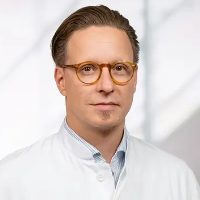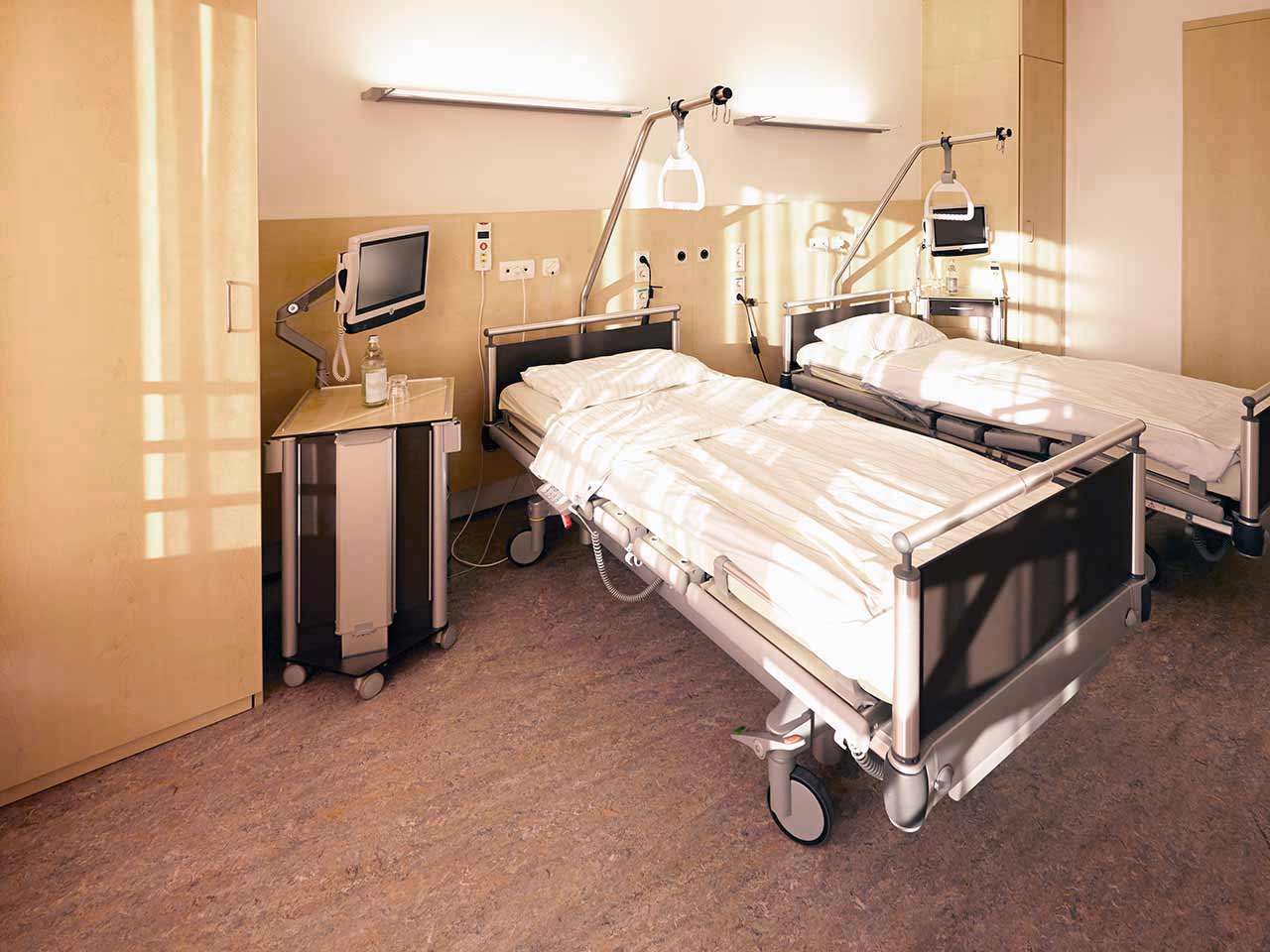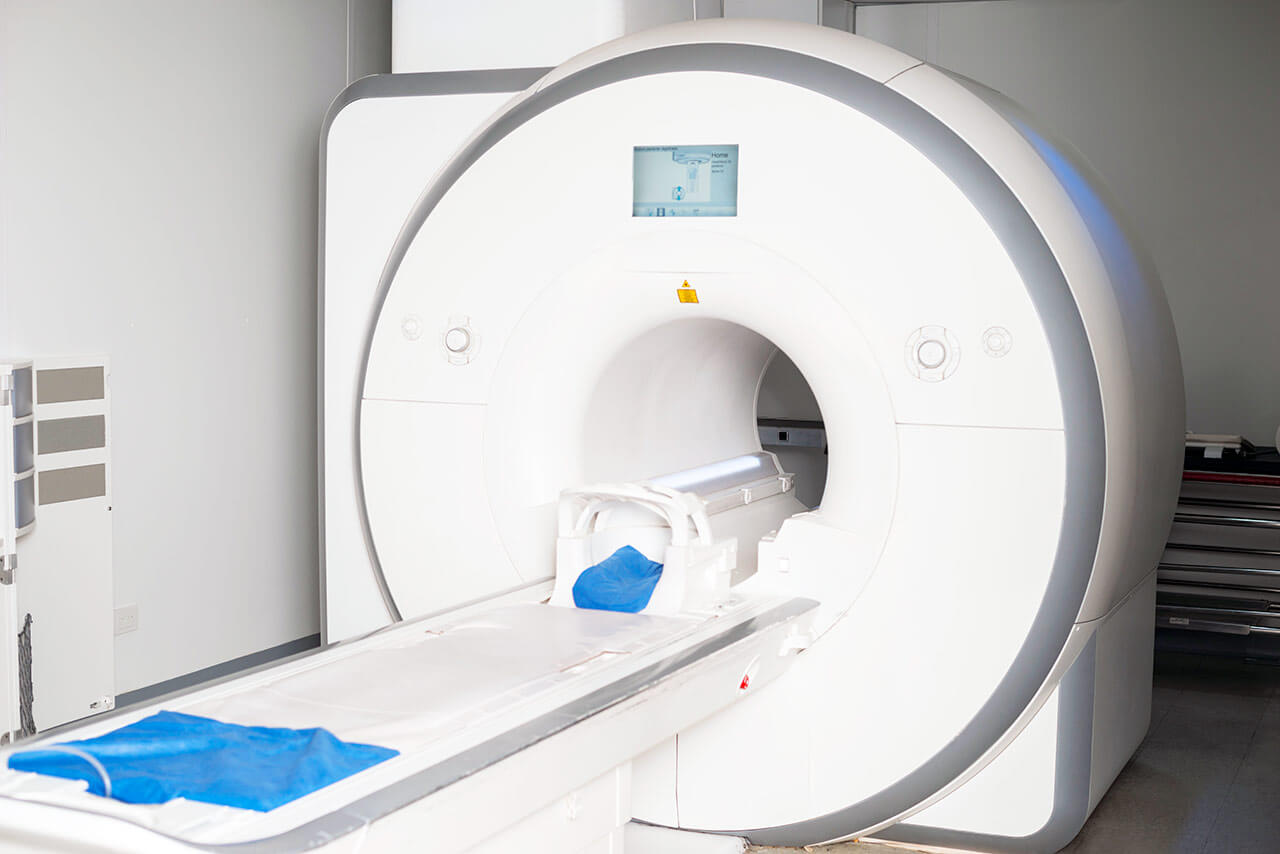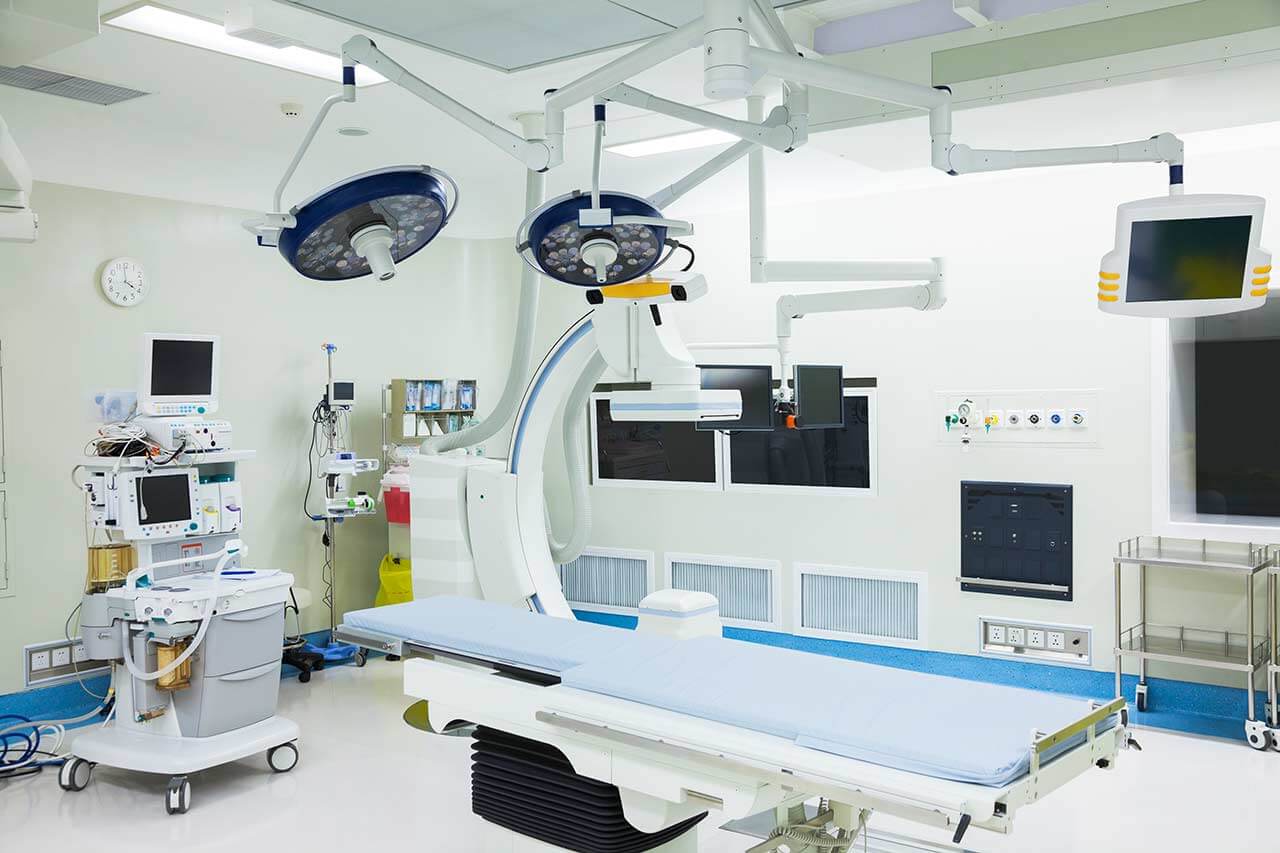
The program includes:
- Initial presentation in the clinic
- clinical history taking
- physical examination
- review of medical records
- laboratory tests:
- complete blood count
- biochemical analysis of blood
- TSH-basal, fT3, fT4
- indicators of inflammation (CRP, ESR)
- indicators blood coagulation
- otorhinolaryngological examination:
- Dix-Hallpike testing
- nystagmus testing:
- spontaneous nystagmus
- positional nystagmus
- artificial nystagmus testing
- speech audiometry
- tympanometry
- eustachian tube testing
- testing of blood pressure and buzzing
for tinnitus examination - otoacoustic emission test
- brainstem audiometry
- VEMP testing
(Vestibular evoked Myogenic Potential) - video head impulse testing
- eye movement testing
- CT of petrous pyramid
- contrast-enhanced MR
imaging on labyrinth in 3D
- preparation according to preoperative standard
- replacement of the stapes bone
of the middle ear with titanium implants - symptomatic treatment
- control examinations
- the cost of essential medicines and materials
- nursing services
- full hospital accommodation
- explanation of future recommendations
- written statement
Required documents
- Medical records
- Audiometry (if available)
- Temporal bone CT scan (if available)
Service
You may also book:
 BookingHealth Price from:
BookingHealth Price from:
About the department
The Department of Adult and Pediatric Otolaryngology at the Nuremberg Hospital offers the full range of diagnostic and therapeutic services for patients with diseases of the ear, throat, and nose, including surgical interventions in the head and neck. The department is one of the largest and most progressive medical facilities of this kind in Germany. More than 6,000 patients are treated in the department every year, and more than 3,700 surgical procedures of varying complexity are performed here. Surgical treatment takes place in well-equipped operating rooms that are adapted for minimally invasive and endoscopic procedures. A specially trained team of pediatricians is available for the treatment of young patients with ENT diseases. The department's specialists always strive to provide each patient with personalized and highly effective treatment adapted to their needs and wishes. At the same time, it is important for doctors to choose the most sparing treatment option. Thus, the department has all the conditions for high-quality medical care in a comfortable atmosphere for the patient. The department is headed by Prof. Dr. med. Maximilian Traxdorf.
One of the department's priority clinical focuses is the treatment of head and neck malignancies. The department is part of the Head and Neck Cancer Center, where otolaryngologists, oral and maxillofacial surgeons, plastic surgeons, neurosurgeons, and other specialists work hand in hand. The doctors at the center are deservedly proud of their many years of experience in the treatment of common and rare types of ENT cancers, including laryngeal, pharyngeal, oral, upper and lower jaw, salivary gland, nasal, paranasal sinus cancers, and so on. As for the treatment of head and neck malignancies, it is thoroughly planned during regular interdisciplinary tumor boards. Such an approach allows doctors to take into account all the features of a patient's clinical case and prescribe a comprehensive treatment with high chances for complete recovery or long-term remission. The doctors at the center have at their command all modern options for the successful treatment of head and neck tumors, such as laser devices for low-traumatic laser surgery, equipment for endoscopic and stereotactic surgery, neuronavigation systems, and devices for intraoperative chemotherapy and radiation therapy. The department's patients are also offered the services of highly qualified plastic surgeons specializing in reconstructive interventions after major resections of large head and neck neoplasms.
Another area of competence for the department's medical team is the treatment of diseases of the nasal cavity and paranasal sinuses. The department's doctors often admit patients with acute and chronic inflammations (sinusitis), which may cause symptoms such as headaches, dry cough, constant nasal congestion or stuffiness, impaired sense of smell, and recurrent infections. When treating sinusitis, the department's doctors resort to the use of nasal sprays, nasal irrigation, inhalations, etc. With a complex course of the inflammatory process, a patient may be indicated for an operation aimed at eliminating impaired paranasal sinus ventilation. In most cases, the department's specialists perform functional endoscopic sinus surgery (FESS). Surgical manipulations are performed using thin microinstruments under video endoscopy guidance, with an approach through the nostrils and without any incisions. In addition, advanced electromagnetic navigation systems are also used during the operation to provide patients with the highest possible level of safety.
The medical facility also has successful experience in the treatment of nasolacrimal duct obstruction. The department's otolaryngologists offer patients two effective surgical interventions for the elimination of the pathological obstruction of the tear ducts. These are the Toti operation and the West operation. The second surgical option is more preferable, as it is performed through an endoscopic endonasal approach and does not leave any scars on the face. In addition, the West operation allows doctors to simultaneously treat nasolacrimal duct obstruction and pathological changes in the nose and paranasal sinuses.
An integral part of the work of the department's doctors is the treatment of hearing loss. Depending on the diagnosis and severity of hearing loss, patients are offered professional selection of behind-the-ear hearing aids, implantation of in-the-ear hearing aids, and hearing improvement surgery (for example, tympanoplasty). The department also offers an innovative cochlear implantation procedure, thanks to which otolaryngologists can restore hearing in patients with severe hearing loss and total deafness. Cochlear implantation surgery can be performed on both adults and children.
The department's diagnostic options include:
- Audiology and pedaudiology
- Subjective audiometry in adults
- Pure tone audiometry
- Threshold audiometry
- Speech audiometry with speech reproduction in silence and noise
- Tinnitus diagnostics
- Dichotic speech tests
- Objective audiometry in adults
- Acoustic impedance measurement
- Otoacoustic emission
- Recording of acoustic evoked potentials
- Subjective audiometry in children
- Pure tone audiometry
- Reflex, behavioral, and play audiometry in infants and young children
- Speech audiometry
- Dichotic speech tests
- Objective audiometry in children
- Acoustic impedance measurement
- Otoacoustic emission
- Electroactive audiometry
- Threshold audiometry
- Speech assessment
- Diagnostics before cochlear implantation and implantation of bone conduction hearing aids
- Subjective audiometry in adults
- Diagnostics of sleep-related breathing disorders within a specialized laboratory
- Diagnostics of the state of the vestibular system (neurotology)
- Classic examinations of the vestibular system
- Electronystagmography
- Rotary chair testing
- Voice diagnostics (phoniatrics)
- Laryngoscopy
- Stroboscopy
- Videostroboscopy
- Diagnostics of swallowing disorders
- Other diagnostic tests
The department's therapeutic range of services includes:
- Conservative treatment
- Drug therapy with pills, infusion therapy, and injection therapy
- Nasal irrigation
- Inhalations
- Surgical treatment
- Surgery for head and neck tumors, including plastic reconstructive interventions and minimally invasive laser interventions
- Surgery for skull base pathologies, such as tumors, inflammations, bone fractures, and CSF fistulas
- Surgery for salivary gland tumors and stones
- Surgery for facial paralysis: reconstructive plastic surgery
- Surgery for laryngeal diseases
- Laser removal of benign and malignant tumors
- Voice restoration surgery for vocal cord paralysis
- Prosthesis implantation after total laryngectomy
- Surgical removal of benign and malignant neck and laryngeal tumors
- Surgery for oral cavity, tongue, and throat diseases
- Tonsil removal
- Surgery to open a tonsillar abscess
- Removal of benign and malignant tumors (also with a laser)
- Surgery for snoring
- Nasal concha reduction
- Nasal septum repair
- Tonsillectomy
- Bipolar radiofrequency reduction interventions in the base of the tongue and soft palate
- Sublingual stimulator implantation
- Surgery for ear diseases
- Prominent ear repair surgery
- Tumor removal with follow-up reconstructive surgery
- Surgery for inflammatory and traumatic middle ear diseases
- Hearing improvement surgery (tympanoplasty)
- Implantation of bone conduction hearing aids
- Cochlear implantation in adults and children
- Surgery for nasal diseases
- Tumor removal with follow-up reconstructive surgery
- Nose reshaping
- Nasal septum reshaping
- Turbinate surgery
- Surgical for paranasal sinus diseases
- Endoscopic endonasal surgery for inflammation, polyps, and tumors
- Endonasal sinus surgery using navigation systems
- Removal of benign and malignant tumors
- Surgery for tracheal diseases
- Foreign body removal
- Tracheal stenosis treatment
- Surgery for neck diseases
- Lymph node removal
- Opening of the cysts and fistulas
- Other conservative and surgical treatments
Curriculum vitae
Higher Education
- 1999 - 2006 Medical studies, Friedrich-Alexander University Erlangen-Nuremberg.
- 2005 University of the West Indies, St. Augustine Campus.
Professional Career
- 2006 - 2012 Assistant Physician, Department of Otolaryngology, Head and Neck Surgery at the University Hospital Erlangen.
- 2012 - 2013 Physician, Department of Otolaryngology, Head and Neck Surgery at the University Hospital Erlangen.
- 2013 - 2019 Senior Physician, Department of Otolaryngology, Head and Neck Surgery at the University Hospital Erlangen.
- 2019 - 2021 Managing Senior Physician, Department of Otolaryngology, Head and Neck Surgery at the University Hospital Erlangen.
- Since October 2021 Head Physician of the Department of Adult and Pediatric Otolaryngology at the Nuremberg Hospital.
Photo of the doctor: (c) Klinikum Nürnberg
About hospital
According to the reputable Focus magazine, the Nuremberg Hospital ranks among the top German medical facilities!
The hospital is one of the largest, highly specialized medical centers in Europe and positions itself as the maximum care hospital. The healthcare facility is an academic hospital of the Paracelsus Medical University in Nuremberg. It houses 42 departments, institutes, and highly specialized centers focusing on various medical fields. All the hospital's employees work hand in hand for the benefit of their patients. The specialists strive to provide top-class medical care for every patient. Moreover, the medical team always shows a humane attitude and understanding towards the patient's life situation, making every effort to support them during the entire therapeutic process.
The total number of beds in the hospital is 2,233. The medical team consists of more than 8,400 employees, including many world-famous doctors and professors who had their clinical training at the best medical facilities in Germany, other European countries, and the USA. The hospital admits more than 100,000 inpatients and more than 170,000 outpatients annually. The number of patients who come to the hospital steadily increases every year, which is the best confirmation of its high standards and outstanding treatment results.
The cornerstone of successful clinical practice is state-of-the-art technical infrastructure. The hospital offers its patients innovative technologies such as the Da Vinci surgical system, devices for stereotactic procedures, intraoperative radiation therapy, angiography, PET CT devices, high-intensity focused ultrasound, 64-slice CT scanners, and other advanced medical devices. The combination of cutting-edge technical facilities and the high competence of the physicians allows for the provision of effective treatment even in the most complex cases.
The Nuremberg Hospital is undoubtedly one of Germany's leading medical facilities, where patients benefit from modern infrastructure, precise diagnostics, effective treatment, and responsive care.
Photo: (с) depositphotos
Accommodation in hospital
Patients rooms
The patients at the Nuremberg Hospital live in comfortable single and double rooms. Each patient room is equipped with an ensuite bathroom with a shower and a toilet. Standard rooms include an automatically adjustable bed, a bedside table, a wardrobe for storing clothes, a table and chairs for receiving visitors, a TV, and a radio. The hospital also offers Wi-Fi.
If desired, patients can live in enhanced-comfort rooms. Such patient rooms are more spacious, and their furnishings correspond to the level of an upscale hotel.
Meals and Menus
The patients at the hospital are offered tasty and balanced meals three times a day: breakfast, lunch, and dinner. The patients have a daily choice of three dishes for lunch and dinner, while breakfast is served as a buffet.
If, for some reason, you do not eat all foods, you will be offered an individual menu. Please inform the medical staff about your food preferences prior to treatment.
Further details
Standard rooms include:
Accompanying person
Your accompanying person may stay with you in your patient room or at the hotel of your choice during the inpatient program.
Hotel
You may stay at the hotel of your choice during the outpatient program. Our managers will support you for selecting the best option.





